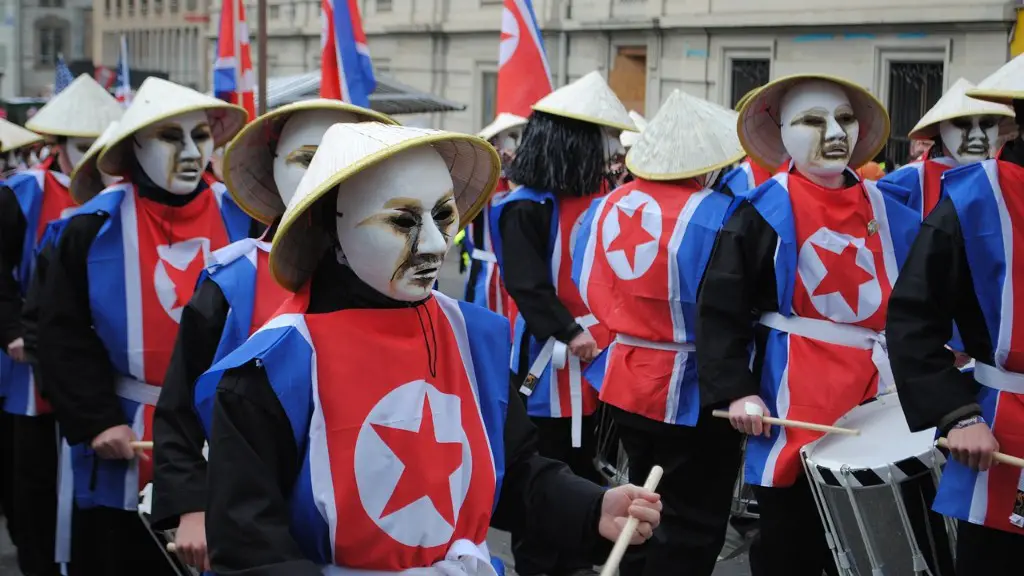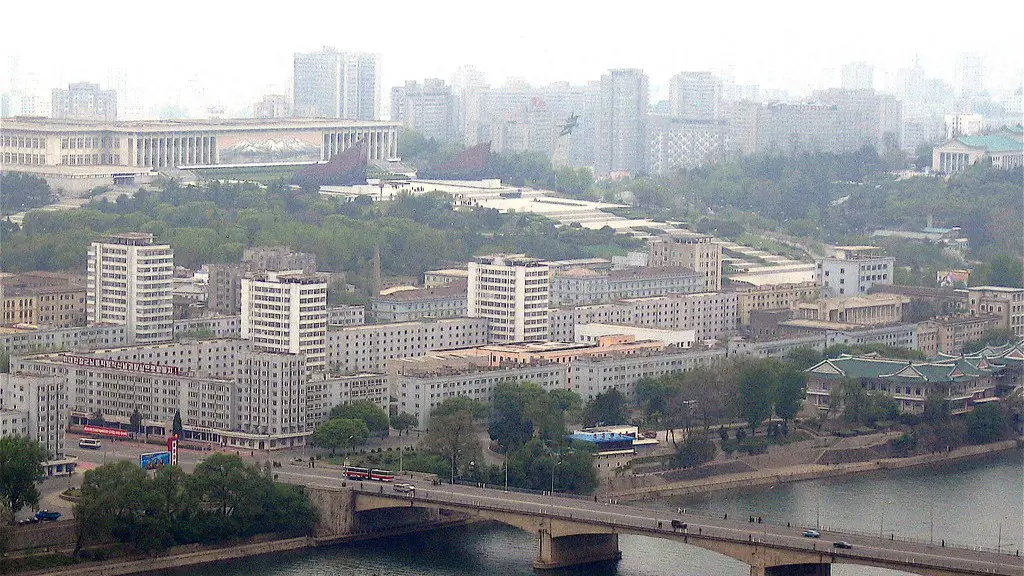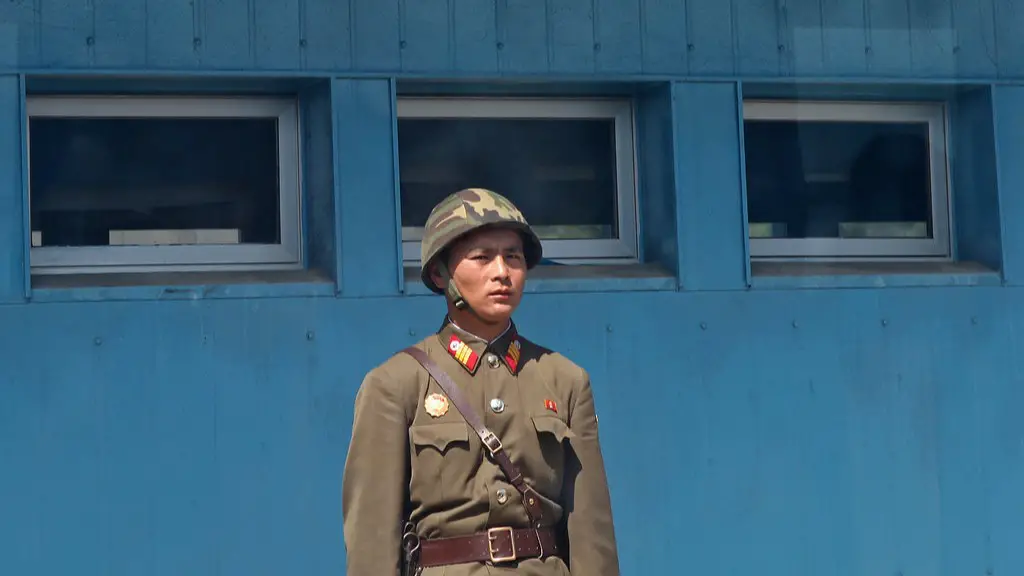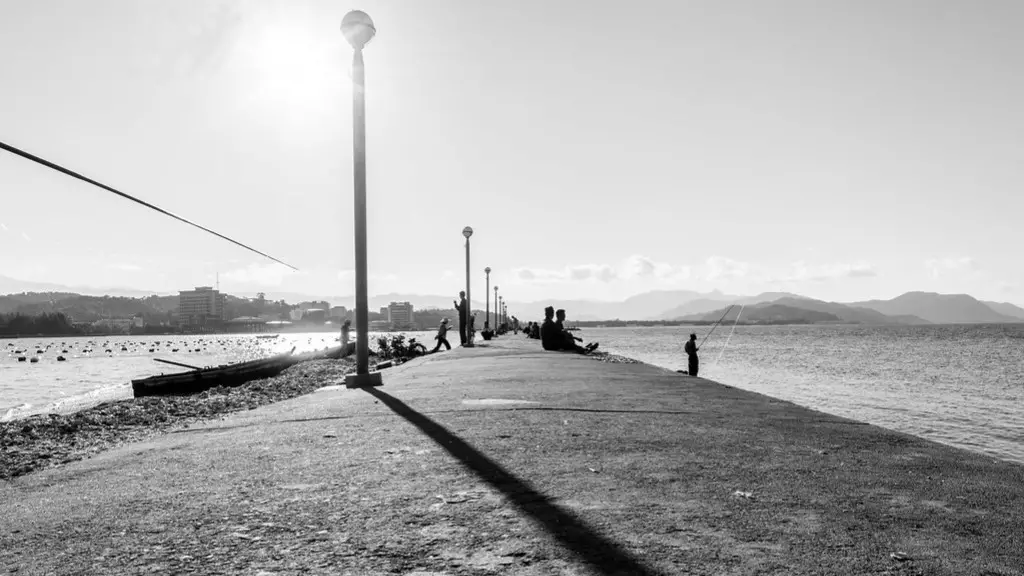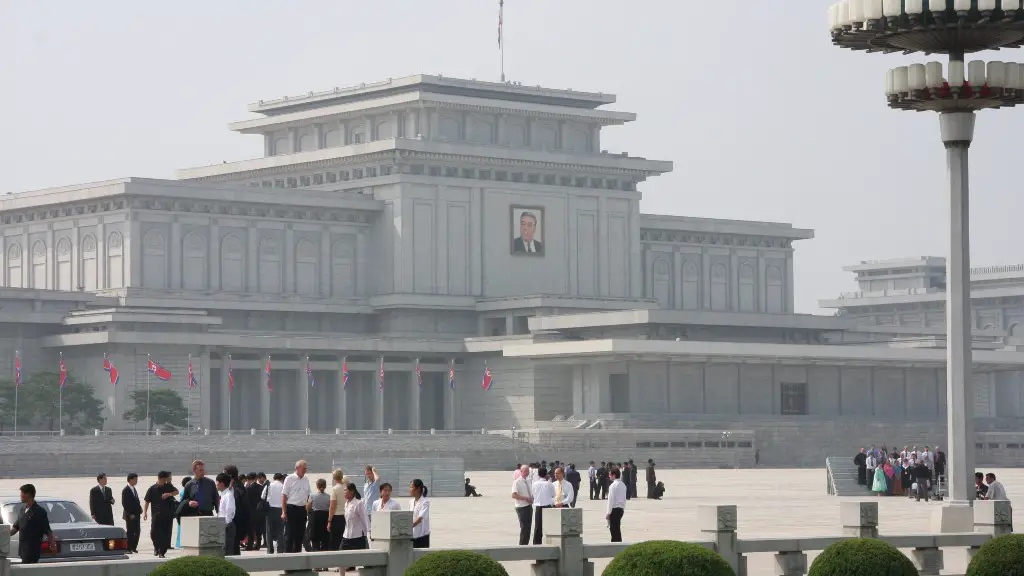The enigmatic hermit kingdom known as North Korea has been the subject of debate and contention since its founding in 1948. Protected by an authoritarian government, this nation is known for its oppressive regime, international censorship, and nuclear proliferation. Despite these issues, which often overshadow the day-to-day life of North Koreans, few are aware and informed of the happenings in this secretive nation. This article will dive into what is happening in North Korea at the moment and provide a better understanding of the complexities and nuances of life in the Hermit kingdom.
One intervening factor that should be acknowledged is the global pandemic. As in many other countries, North Korean officials have taken precautionary measures to quell the risk of COVID-19, including bans on travel and closure of borders. This has resulted in a rapid decline in foreign investment, which has crippled the country’s already fragile economy. This has further increased the North Korean government’s control and power. Unless the situation improves significantly, North Koreans will continue to suffer economically for the foreseeable future.
Though human rights abuses are common in North Korea, the worst abuses are typically reserved for political prisoners. With an estimated 120,000 prisoners in concentration camps, North Korean officials have relied on indefinite confinement and cruel punishments to keep prisoners in check. A recent Amnesty International report cites “systematic interrogation and torture” which often bleed into other forms of imprisonment such as ‘labor camps’ and re-education camps. Such situations have earned North Korea international condemnation, though few actually understand the severity of human rights violations within the country.
Amid this tense political atmosphere, another concern has been the preservation of nuclear sites and power stations. Nuclear proliferation is arguably the greatest threat posed by North Korea, and recent reports suggest that under the current regime, nuclear sites have been heavily guarded and maintained by North Korean forces. It is believed that North Korea could launch an attack at any moment and the only safety net against such an attack is the UN enforced sanctions and the international community’s monitoring. Such a situation leaves North Korea’s citizens in a precarious position.
Furthermore, the government’s lack of transparency is also pertinent. Citizens of North Korea are not provided with any form of access or information regarding news or current events from outside of their country. Any media outlets that do exist inside the country are heavily regulated and strictly censored. North Korean officials have gone as far as to sell propaganda and false information via local media. This has only increased the isolation of the North Korean citizens, leaving them in the dark when it comes to global events, politics, and free speech.
Beyond the government sanctioned problems, ordinary North Koreans face a mountain of challenges each day. Economic hardship, medical shortages, and food shortages are only some of the issues that have plagued this country for many years. This lack of infrastructure has led to high poverty rates among the population. Furthermore, any type of dissent or civil protest is often met with brutal reprisals. This puts an immense strain on the North Korean populace and often makes it difficult to even attempt to voice their discontent.
The North Korean state is one of the most oppressive and secretive governments in the world. All evidence points to the fact that the population is suffering heavily due to their government’s corruption and aggression. Though efforts are being made to ease the situation, it seems that North Koreans living under the rule of dictator Kim Jong-un will continue to endure hard times.
North Korean Refugees
Since the founding of a totalitarian regime in North Korea there has been a steady flow of defectors looking to escape its cruel environment. For some, their lives became unbearable and they risked their lives to escape the country. Others had the opportunity to leave due to their families holding foreign passports and being able to settle in the country. As a result, it is estimated that up to ten thousand North Korean refugees now reside in South Korea. This has been a source of pain and anguish for many families separated by the Korean War.
Refugees who have made it to South Korea are regarded with a mix of appreciation, awe and suspicion by the locals depending on their store of knowledge. Nonetheless, the Korean communities both inside and outside the country have welcomed them with open arms and a helping hand. This has enabled some of the refugees to start a new life, and those who were lucky enough to leave with the help of their family have gone on to do some extraordinary things in the fields of technology, the arts, and sports.
Despite their successes, North Korean refugees continue to struggle with learning a new language, adapting to a new society, and dealing with the trauma of leaving their homeland. It has been difficult for many to open up and talk about their past and struggles, due to the stigmas associated with being a North Korean refugee. South Korean society still does not fully accept these individuals and treat them with suspicion, making it difficult for them to find employment and a place to live. This lack of acceptance has caused many North Korean refugees to become isolated and depressed.
Yet despite their struggles, many North Korean refugees continue to live with hope and resilience. In recent years, a movement has started to be more open and vocal about the conditions and violations of human rights in the North. This has encouraged more transparency and discussions about the issue, and many refugees are beginning to see the potential for change. This movement has also led to more public awareness and activism and is making a positive impact in the fight against oppression in North Korea.
International Oppression
North Korea’s nuclear weapons are believed to be one of the biggest concerns among the international community. The Hermit Kingdom has become known for their missile tests, and the threat of nuclear war these pose. This has exacerbated the tension between the US, South Korea, China, and Japan. However, what often goes overlooked is the other forms of international repression imposed on the North Korean people.
International sanctions are one of the greatest obstacles that North Korea faces. Since North Korea’s first nuclear test in 2006, the country has been subject to a complex network of UN sanctions that actively limit its ability to acquire weapons and other equipment that could be used for nuclear proliferation or military advancement. These sanctions have hindered North Korean trading capabilities, put additional restrictions on the flow of information, and cause difficulties for North Korean citizens wishing to travel abroad.
International aid is also limited in North Korea. Without the courage of international organizations, North Koreans would suffer from famine, inhumane work conditions, scarcity of medical supplies, and psychological trauma. Nonetheless, international aid is heavily scrutinized by North Korean officials, who have been known to divert supplies meant for the local population, turning it into a tool of oppression.
Recently, the United Nations has stepped up its efforts to provide clear and consistent aid to the North Korean people, while still holding the regime accountable for its immense human rights violations. However, the support of the international community is necessary in order to ensure that all the aid provided is done in a safe, effective, and efficient manner.
In short, international powers are beginning to take a serious stance against the North Korean regime. While it is difficult to tell how effective these efforts will be at curbing the power of North Korean officials, one thing is certain: this international pressure is an attempt to bring justice and relief to a population long-neglected by the world.
Ethnic Koreans in Japan
One of the many international repercussions of the North Korean regime can be felt in the plight of ethnic Koreans living in the neighboring country of Japan. Though these individuals have been in Japan for generations, they still struggle with institutionalized discrimination and difficulties in adaption to Japanese culture. This is due to the fact that the Japanese government does not recognize the rights of citizens of Korean descent, and as a result, they are denied access to public services, such as health care, education, and employment opportunities.
The plight of ethnic Koreans in Japan is further exacerbated by the fact Hat those who are of North Korean descent are often subject to extra scrutiny. The Japanese government has been known to deny North Korean refugees the opportunity to settle in Japan, while at the same time severely limiting their travel rights. This has been incredibly painful for many North Korean refugees in Japan, who have been barred from reuniting with their families back in North Korea.
Consequently, ethnic Koreans in Japan are in danger of losing their cultural heritage as well as their identity as Koreans. Without any type of government recognition, these individuals are unable to celebrate traditional Korean holidays or even express their culture. This further creates a feeling of alienation and isolation for individuals of Korean descent.
Recently, Japan has shown a willingness to improve the condition of Ethnic Koreans living within their borders. Japan has become more open to allowing North Korean refugees to permanently settle in their country and has also started to recognize the rights of ethnic Koreans. Despite this, it may take some time before these individuals can truly feel accepted by the Japanese government.
Information Accessibility
With its oppressive regime, censorship of its media outlets, and secrecy surrounding its ruling powers, North Korea is one of the least accessible countries in the world. For a long time, international efforts to gain access to the North Korean people and to understand the realities of life in the hermit kingdom have met with little to no success. But recently, the international community has begun to make strides in the right direction with new initiatives aimed at increasing information access to the North Korean population.
Organizations such as the Open Technology Fund (OTF) and Reporters Without Borders (RSF) are leading the way in terms of providing the North Korean population access to the global information network. Through the development and distribution of technology such as radios, flash drives, and shortwave radios, these organizations are providing North Koreans with a clear channel to access vital news and information. In addition, they are also working to protect North Korean refugees and dissidents, providing them with safe and secure channels to find refuge and safety.
This newfound accessibility has enabled North Koreans to gain a greater understanding of the outside world and to better advocate for their own rights and freedoms. Human-rights workers and journalists have been emboldened to move closer to the border and report on what is happening in North Korea. Additionally, these initiatives have led to an increased awareness of North Korea’s situation and its human rights record, something that has been lacking for many years.
Even with these efforts, it is clear that much more needs to be done to completely remove the barriers that exist between North Korea and the outside world. All of this starts with open dialogue and better communication between North Korea and the global community. If we are to properly address the issues that plague the North Korean people, this conversation needs to begin now.
